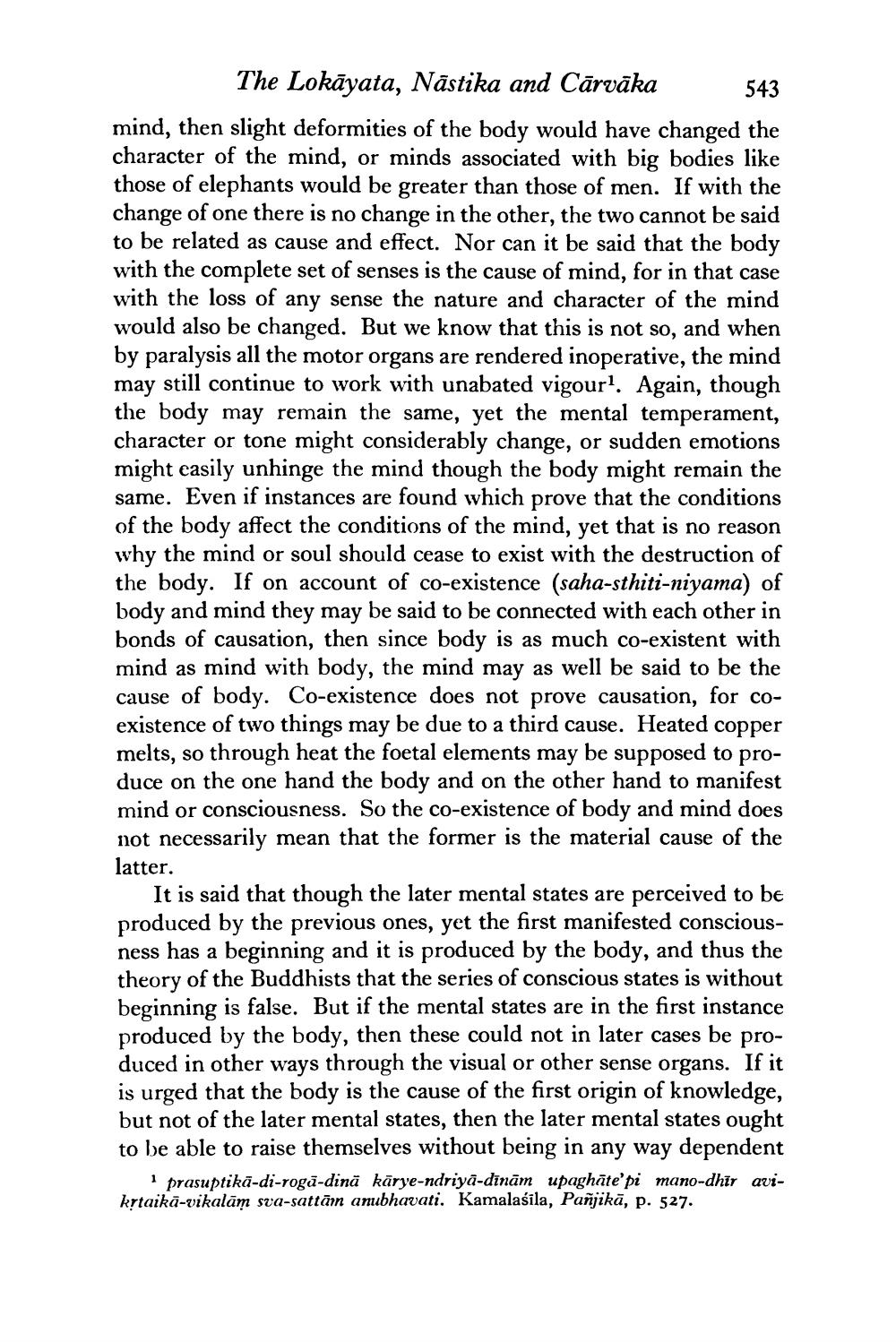________________
The Lokāyata, Nāstika and Cārvāka 543 mind, then slight deformities of the body would have changed the character of the mind, or minds associated with big bodies like those of elephants would be greater than those of men. If with the change of one there is no change in the other, the two cannot be said to be related as cause and effect. Nor can it be said that the body with the complete set of senses is the cause of mind, for in that case with the loss of any sense the nature and character of the mind would also be changed. But we know that this is not so, and when by paralysis all the motor organs are rendered inoperative, the mind may still continue to work with unabated vigour?. Again, though the body may remain the same, yet the mental temperament, character or tone might considerably change, or sudden emotions might casily unhinge the mind though the body might remain the same. Even if instances are found which prove that the conditions of the body affect the conditions of the mind, yet that is no reason why the mind or soul should cease to exist with the destruction of the body. If on account of co-existence (saha-sthiti-niyama) of body and mind they may be said to be connected with each other in bonds of causation, then since body is as much co-existent with mind as mind with body, the mind may as well be said to be the cause of body. Co-existence does not prove causation, for coexistence of two things may be due to a third cause. Heated copper melts, so through heat the foetal elements may be supposed to produce on the one hand the body and on the other hand to manifest mind or consciousness. So the co-existence of body and mind does not necessarily mean that the former is the material cause of the latter.
It is said that though the later mental states are perceived to be produced by the previous ones, yet the first manifested consciousness has a beginning and it is produced by the body, and thus the theory of the Buddhists that the series of conscious states is without beginning is false. But if the mental states are in the first instance produced by the body, then these could not in later cases be produced in other ways through the visual or other sense organs. If it is urged that the body is the cause of the first origin of knowledge, but not of the later mental states, then the later mental states ought to be able to raise themselves without being in any way dependent
i prasuptikā-di-rogā-dinā kārye-ndriyā-dīnām upaghāte'pi mano-dhir avikrtaikā-vikalām sva-sattām anubhavati. Kamalasila, Pañjikā, p. 527.




